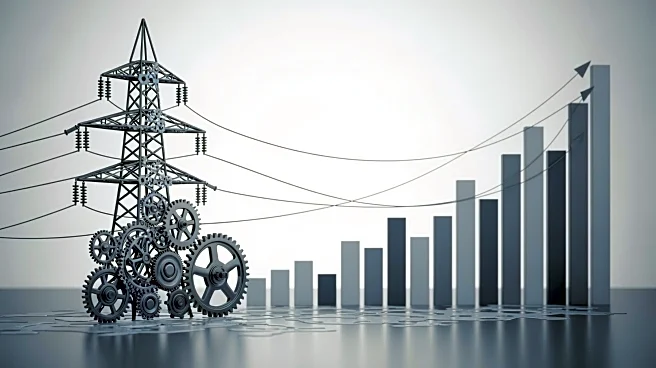What's Happening?
A group of 21 Democratic members of the U.S. House of Representatives has called on PJM Interconnection to reform its interconnection process to help lower electricity costs. The lawmakers, led by Rep.
Don Beyer, expressed concerns over rising electric rates, which have increased by more than 20% in some areas. They argue that PJM's current interconnection process contributes to these rate hikes and urged the grid operator to pursue reforms that would prevent future increases. The Federal Energy Regulatory Commission (FERC) recently ruled that PJM failed to meet new requirements for interconnecting power supplies, prompting the lawmakers to push for changes. They also criticized PJM for favoring gas-fired power plants over other forms of generation and proposed an expedited interconnection track for state-supported projects larger than 500 MW.
Why It's Important?
The call for interconnection reforms by Democratic lawmakers highlights the growing concern over electricity costs and the impact on consumers. Rising rates can strain household budgets, especially during times of economic uncertainty. The lawmakers' push for reforms aims to address these issues by making the interconnection process more efficient and equitable. Additionally, the focus on alternative transmission technologies and battery storage projects reflects a shift towards more sustainable energy solutions. If successful, these reforms could lead to lower electricity costs and a more reliable grid, benefiting consumers and promoting clean energy initiatives.
What's Next?
PJM is expected to respond to FERC's decision on October 22, which could lead to further discussions on interconnection reforms. The outcome may influence how PJM and other grid operators approach interconnection processes and prioritize different types of energy generation. Additionally, Pennsylvania state legislators are considering a study on the state's participation in PJM, which could lead to changes in how the state interacts with the grid operator. These developments may impact future energy policies and the balance between fossil fuels and renewable energy sources.









